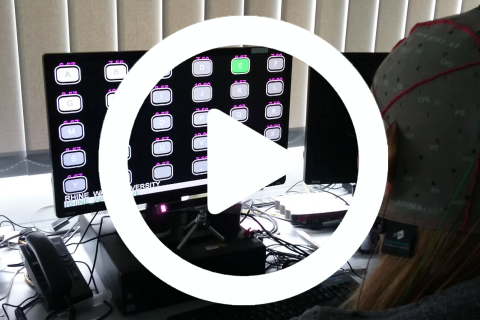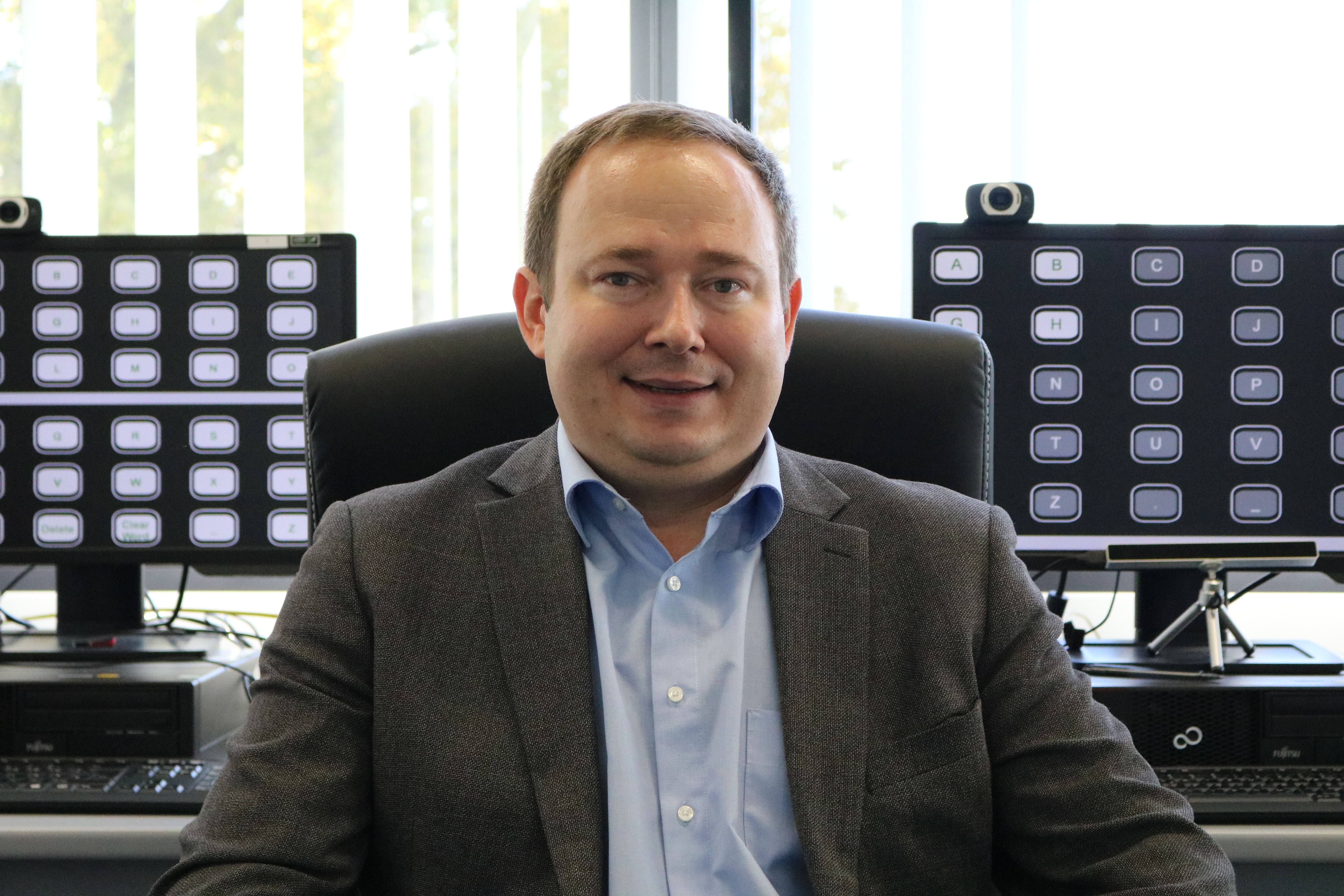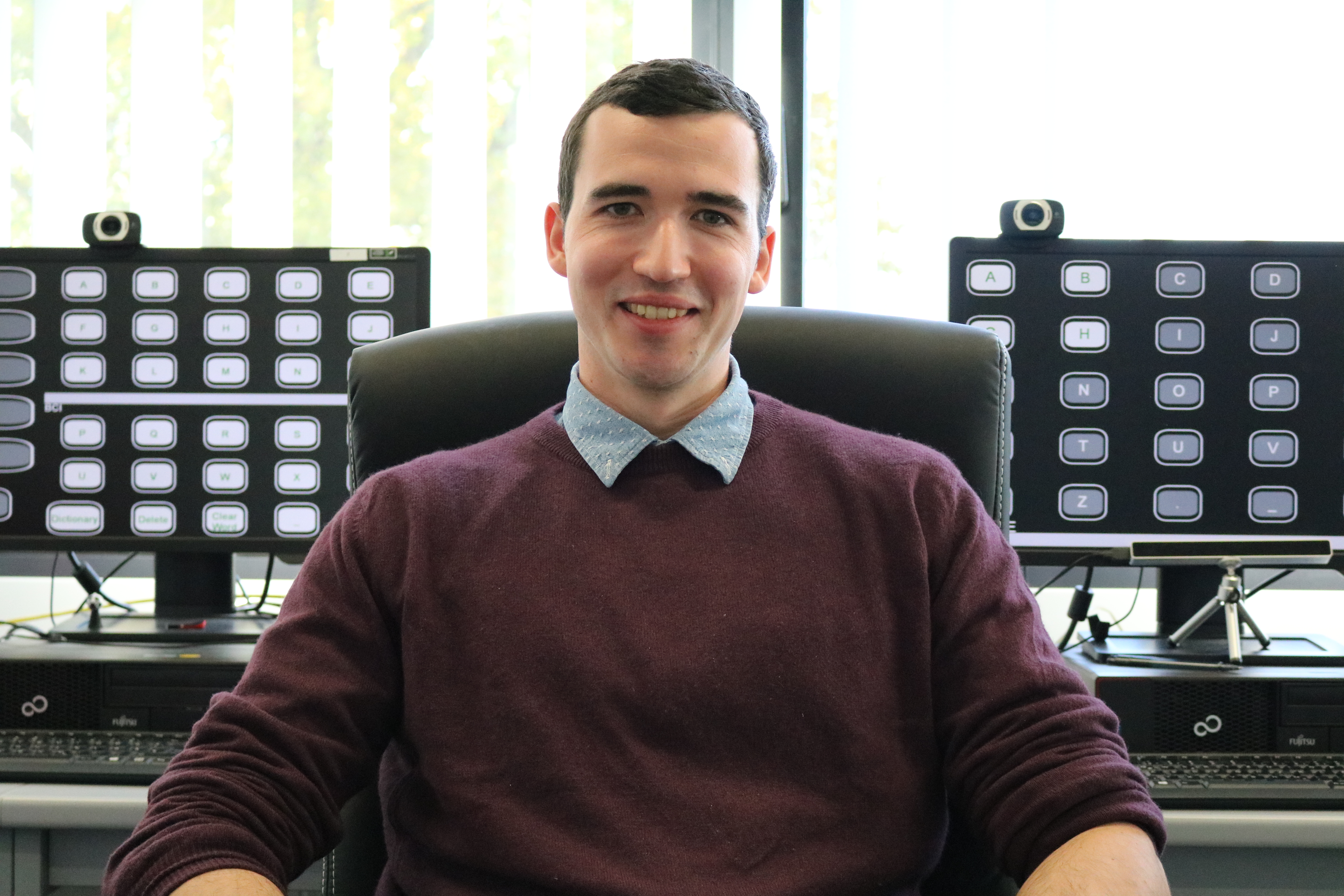BCI@Home
Brain-computer interfaces in the Smart Home of the future
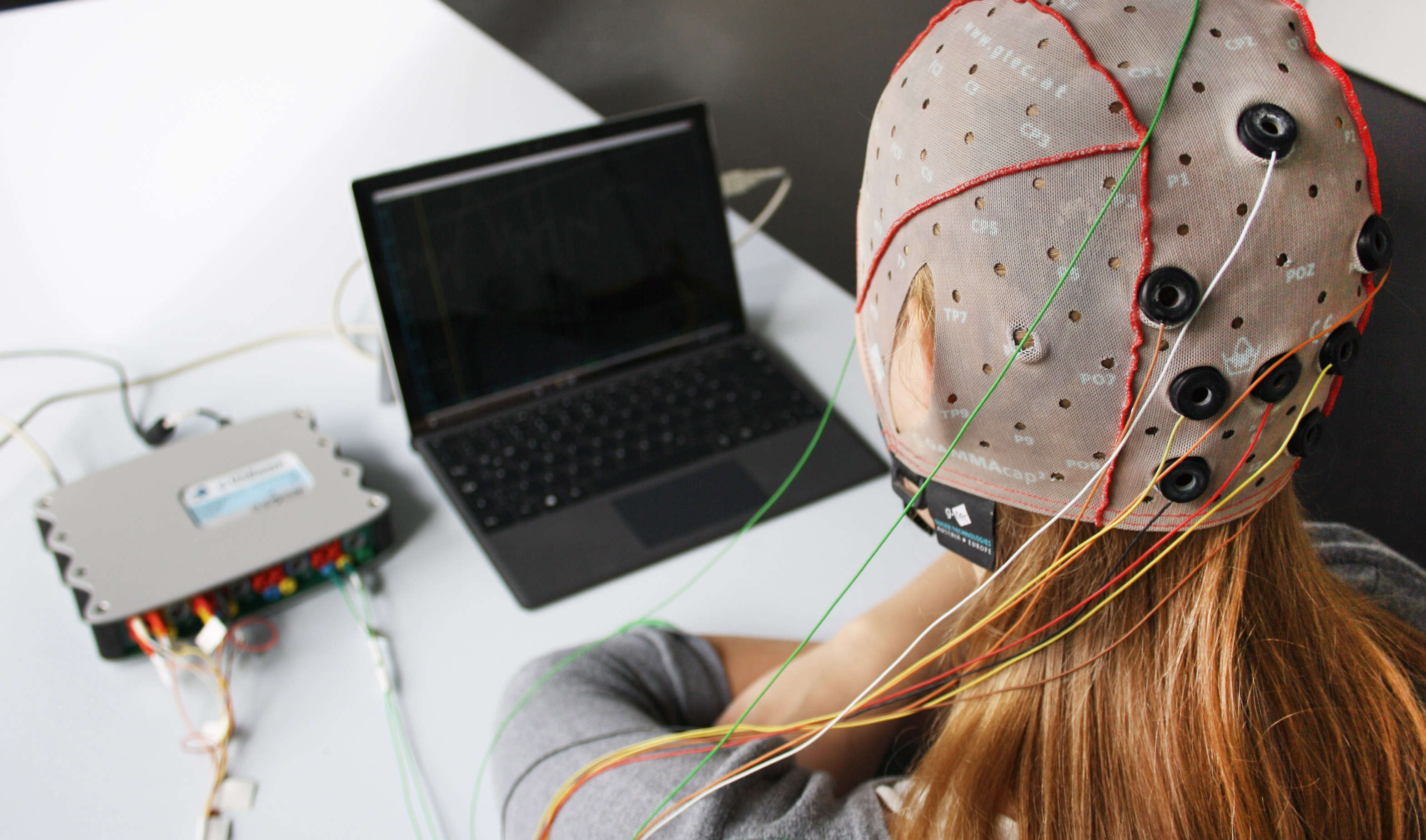
Moving everyday objects with your mind? What was once science fiction has now become reality thanks to modern brain-computer interface (BCI) systems. In the BCI@Home project, we are exploring how to best connect brain and computer in order to improve the lives of people with limited physical abilities. This interface, for example, would allow patients to communicate without speech and even control robots solely through brain activity.
Due to degenerative illness or aging, many people are limited in how they can interact with their environment. The BCI system offers its users the opportunity to steer communication devices and assistive technology using only their brain waves.
Our system uses so-called "SSVEPs" (steady state visual evoked potentials). These are electric potentials that occur in our brain when our eyes perceive visual stimuli of certain frequencies. In our experiment, we use flickering boxes on a computer screen to trigger these SSVEPs in the visual cortex of the human brain. The boxes on the screen flicker at different frequencies from 6 to 90Hz. Each box is assigned to a certain command or letter so that the user can activate that command or spell out a word just by glancing at the respective boxes. This allows BCI technology to be used to control assistive technology such as robots, remote controls or communication systems.
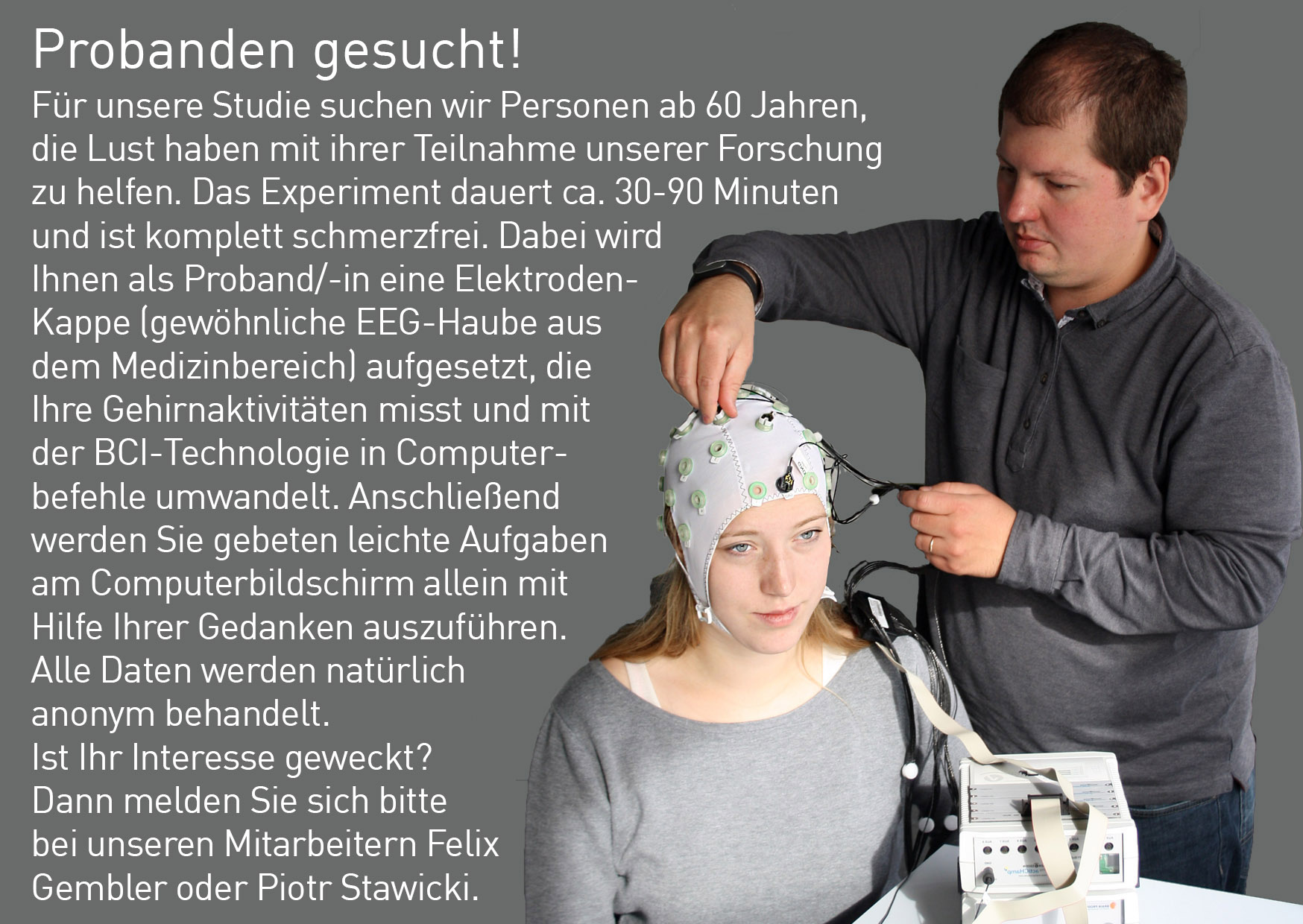 Our BCI@Home project, led by Prof Dr-Ing Ivan Volosyak, is a collaboration with our industrial partner polyoptics GmbH. Our common goal is to make a more user-friendly home environment, particularly for people with physical impairments.
Our BCI@Home project, led by Prof Dr-Ing Ivan Volosyak, is a collaboration with our industrial partner polyoptics GmbH. Our common goal is to make a more user-friendly home environment, particularly for people with physical impairments.
We are also using this project to link research and teaching. Students can write their theses in the context of the research project, for example. In addition, student assistants actively support our research efforts (please contact the project lead if you are interested in joining our team as a student assistant).
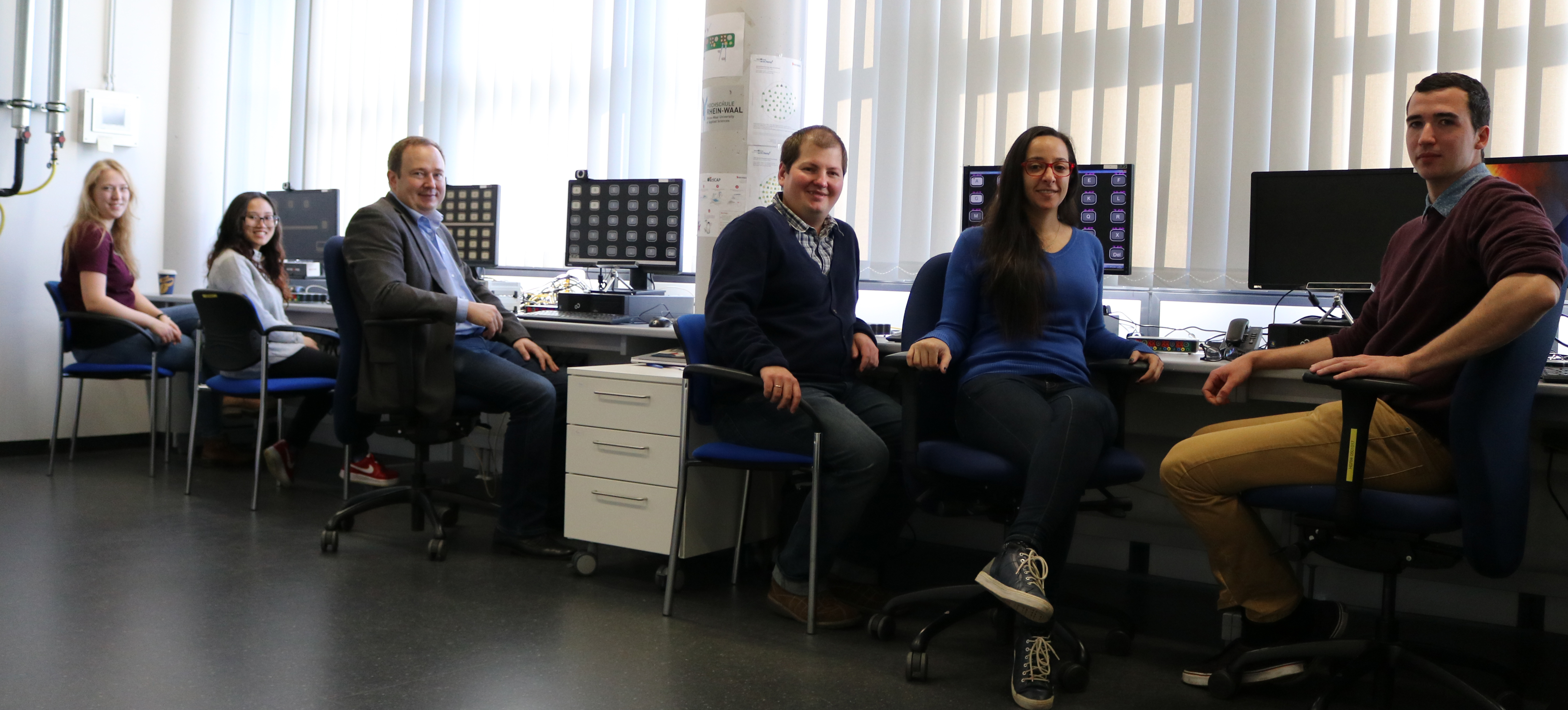
The project is supported financially by the European Fund for Regional Development (ERDF) and the North Rhine-Westphalia State Government (grant number: GE-1-1-047). The project includes a study which has been approved by the Ethics Committee of the Medical Faculty of the University of Duisburg-Essen.
Downloads
Projektleitung
ivan.volosyak@hochschule-rhein-waal.de
Wissenschaftliche Mitarbeiter
felix.gembler@hochschule-rhein-waal.de
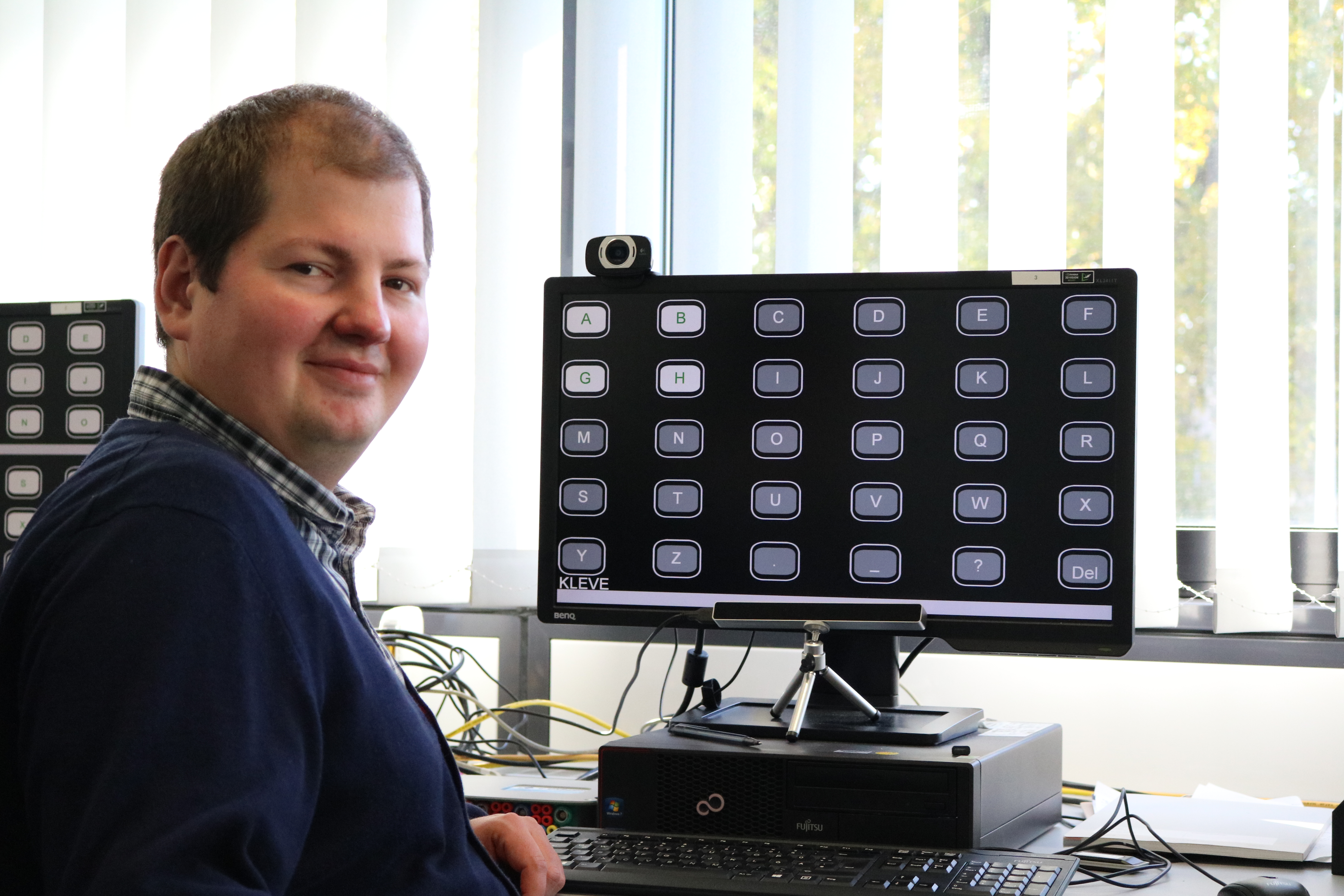 mgr inż. (Dipl.-Ing.) Piotr Stawicki
mgr inż. (Dipl.-Ing.) Piotr Stawicki
piotr.stawicki@hochschule-rhein-waal.de
Labor
Raum: 05 01 017
Telefon: 02821/80673-42051




